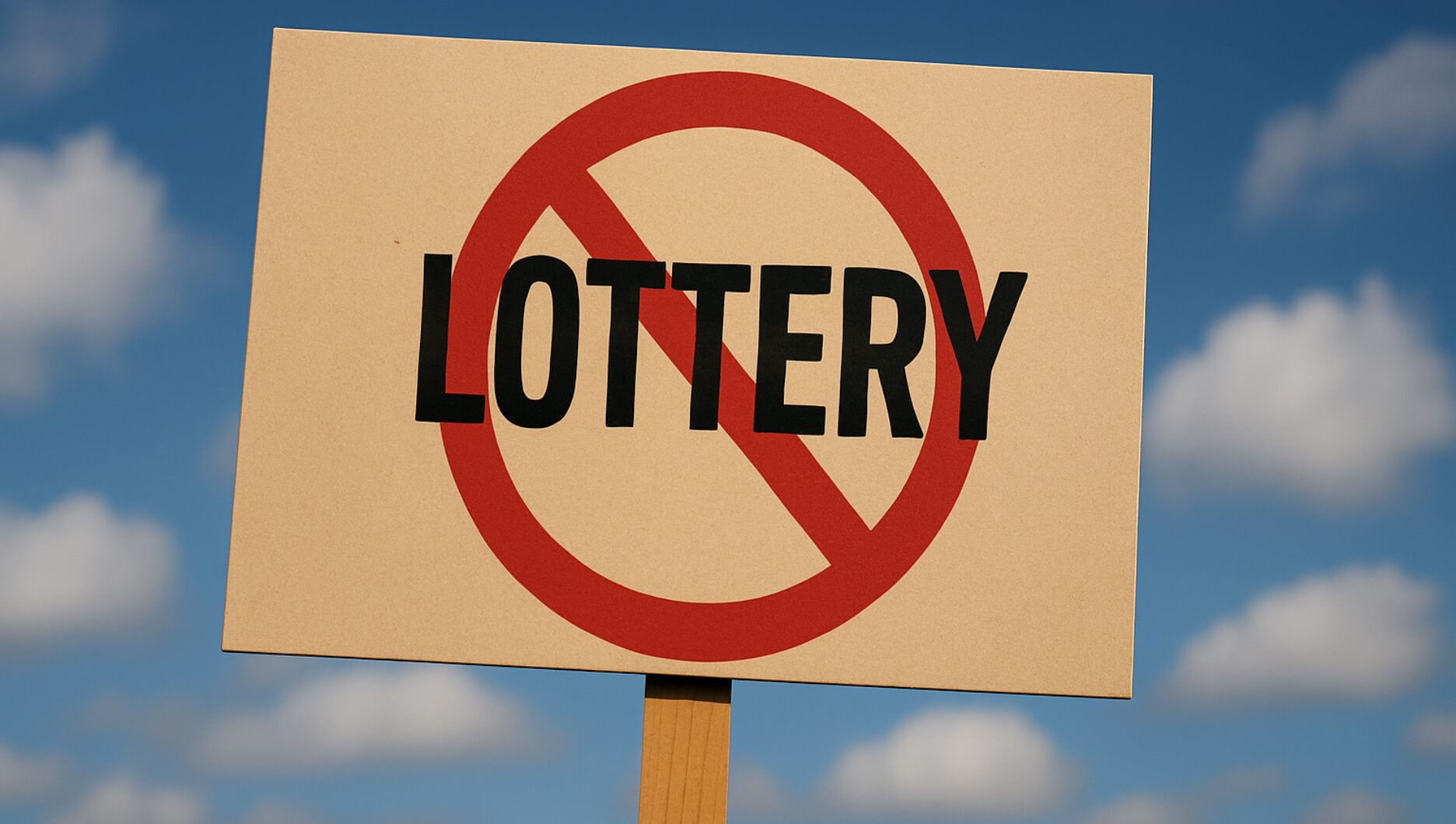
Texas should end the Texas Lottery and Lottery Commission, and stop exploiting struggling families to fund the government through gambling. The Texas Lottery Commission should not be continued this session—it should be abolished.
There are several opportunities to accomplish this before the end of the 89th Legislative session.
The government-run Texas Lottery is not within the proper role of limited government. Let’s be frank: It’s a state-sanctioned gambling enterprise that preys on low-income Texans. Lottery tickets are often marketed as “hope,” yet they function as a regressive revenue stream that traps struggling individuals in cycles of false promise and financial instability. For too many, the lottery is not entertainment—it’s a last-ditch attempt to escape poverty. But the odds are overwhelmingly against them.
A few bills have been filed to tackle this issue head on:
SB 1988 by Sate Sen. Bob Hall (R-Edgewood), would abolish the Texas lottery outright. This bill was heard in the Senate State Affairs Committee on May 9th. Meanwhile, HB 2918 by State Rep. Matt Shaheen (R-Plano) which is identical to Sen. Hall’s SB 1988, never received a hearing.
Sen. Hall has since filed, after the filing deadline, what appears to be a less direct measure, SB 3070, abolishing the lottery commission, transferring operations of the State Lottery to the Department of Licensing and Regulation, and requiring a detailed review of the Lottery itself, and then requiring the lottery’s abolishment in September, 2027, if not continued by the Legislature next session. This bill was filed and heard in committee all in one day, on May 12th.
Another opportunity to achieve this feat is SB 2401. It is a procedural bill designed to continue the Sunset Review process for numerous state agencies, including the Texas Lottery Commission. While the bill does not substantively change how these agencies operate, it presents a critical opportunity to reevaluate whether some of them should exist at all.
Reports have highlighted widespread waste, fraud, and abuse in lottery operations. In recent years, allegations of mismanagement, insider benefits, and misleading prize claims have surfaced. This isn’t just unethical—it’s dangerous public policy. The state has no business promoting gambling, let alone running it.
Some argue that the lottery funds education and other programs. But that’s a bait-and-switch. The money raised is a fraction of the state’s education budget, and it doesn’t increase overall funding—it just replaces general revenue that would’ve gone there anyway. Worse, the state profits from behavior it should discourage.
From a free-market perspective, the Lottery is also anti-competitive. It’s a government monopoly in the entertainment sector that should be private (if it exists at all). By running and promoting the lottery, the state uses its power to outcompete any alternatives, creating an unfair advantage and distorting the market.
And the claim that eliminating the lottery would reduce state revenue? Consumer spending is fungible. Money that low-income families spend on lottery tickets—an average of hundreds of dollars annually—would likely be redirected to other consumer goods and services, many of which are still taxed. Or the money could be saved, helping families remain more financially resilient. Redirecting spending away from gambling toward more productive activity would help the economy, create jobs, and improve household financial health.
This redirection could help reduce poverty, rather than exacerbate it. Gambling addiction and financially destructive lottery habits are a hidden tax on desperation. Ending the state’s role in enabling this behavior would help families regain control and reinvest in their futures.
Moreover, maintaining the Lottery Commission contradicts the principles of limited government and personal responsibility. Rather than promoting self-reliance and prudent financial behavior, Texas profits off false hope.
Worse still, SB 2 and HB 2 together illustrate the unsustainable nature of the current government spending trajectory. Texans are already funding more than $100 billion annually on government schools. By financing a government-run gambling scheme and simultaneously adding $8 billion more to public education, while giving just $1 to school choice for every $8 to government schools, we’re creating massive budget pressures that will crowd out real property tax relief. This makes it harder to achieve long-term goals, such as eliminating property taxes, by starting with the state’s largest one: school district M&O property taxes.
We need to be honest about tradeoffs. Continuing the Lottery Commission distorts fiscal priorities.
Legislators should oppose any effort to continue the Texas Lottery this session. The Lottery is unethical, unnecessary, and incompatible with the values of liberty, personal responsibility, and economic opportunity.
Abolishing the Texas Lottery is a moral, fiscal, and economic imperative. Let’s stop funding government on the backs of low-income families—and start building a system where every Texan has the chance to thrive.
Texans for Fiscal Responsibility relies on the support of private donors across the Lone Star State in order to promote fiscal responsibility and pro-taxpayer government in Texas. Please consider supporting our efforts! Thank you!
Get The Fiscal Note, our free weekly roll-up on all the current events that could impact your wallet. Subscribe today!




